The past 20 years have seen a spectacular rise in cafes across Australia.
When I moved to my suburb of Ashburton in Melbourne in 2006, there were maybe four cafes at my local High Street strip shop.
Over the following 18 years, I have witnessed the number of cafes swell to absurdity.
There are now more than a dozen cafes on or just off High Street, most of which lie empty for most of the day.
It is a similar story throughout Melbourne and likely across Australia.
While a few select cafes do well and attract large crowds, most struggle to make ends meet.
There are simply too many cafes for the level of demand and the rising cost of living. Given the hyperinflation in mortgage payments and rents, who can afford to spend $5 on a lukewarm coffee and $20 on eggs on avocado toast?
According to the Australian Securities and Investments Commission (ASIC), a wave of insolvencies has hit the hospitality industry:
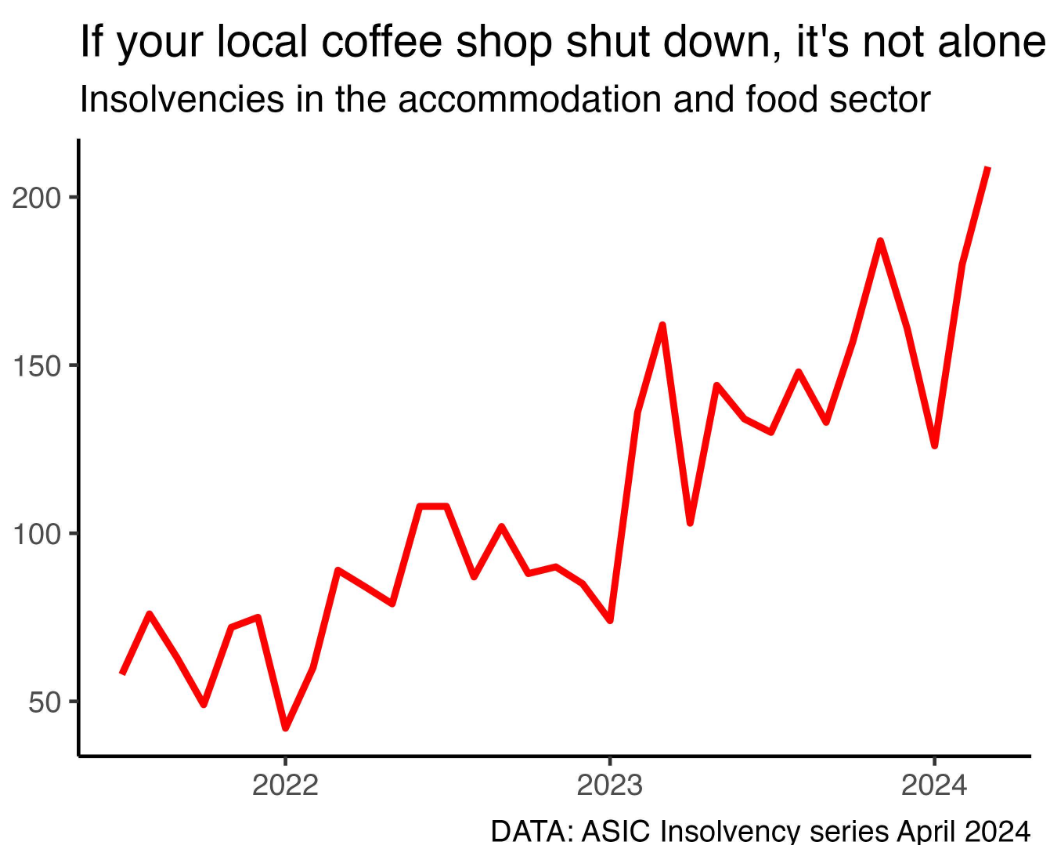
According to economist Jason Murphy, “Australian spending on cafes and restaurants has stalled at about $5 billion a month. That’s despite rising prices, which implies cafes are selling fewer items”.
“And given that the population is bigger than it was a year ago – quite a lot bigger in fact – the fact that spending has stalled is quite significant”.
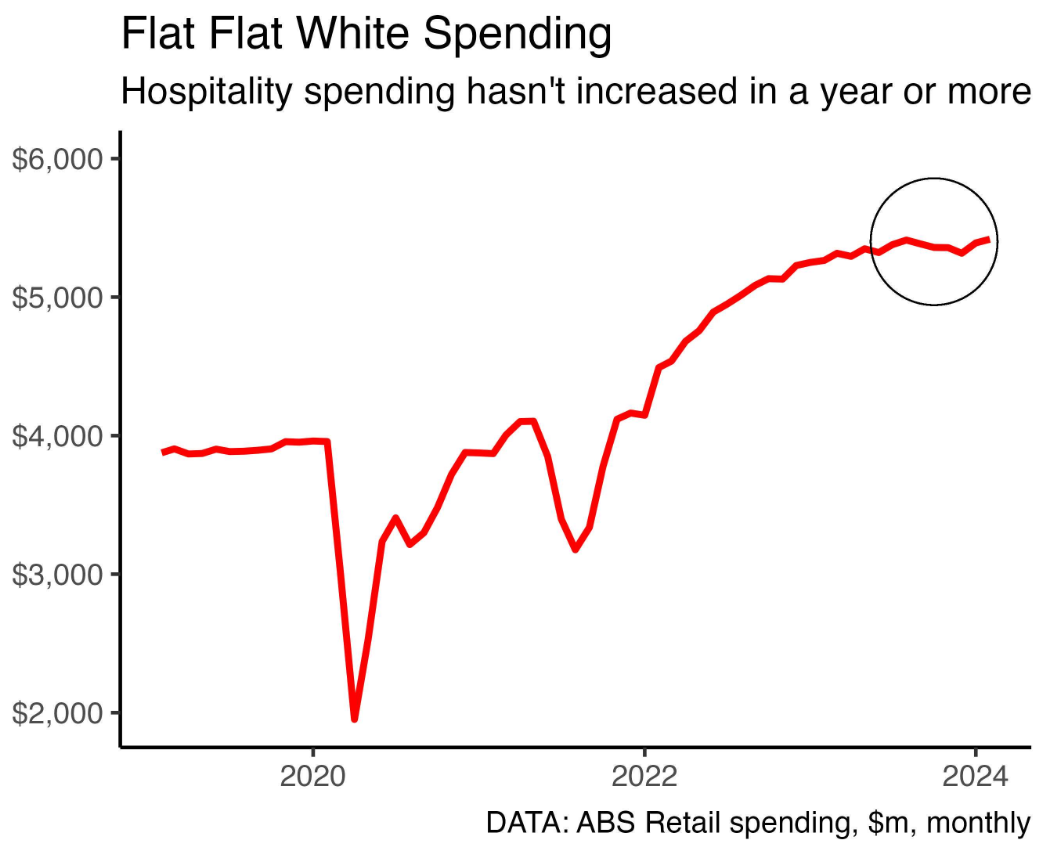
Meanwhile, the cost of running a cafe has surged, including energy, food products, and labour costs:
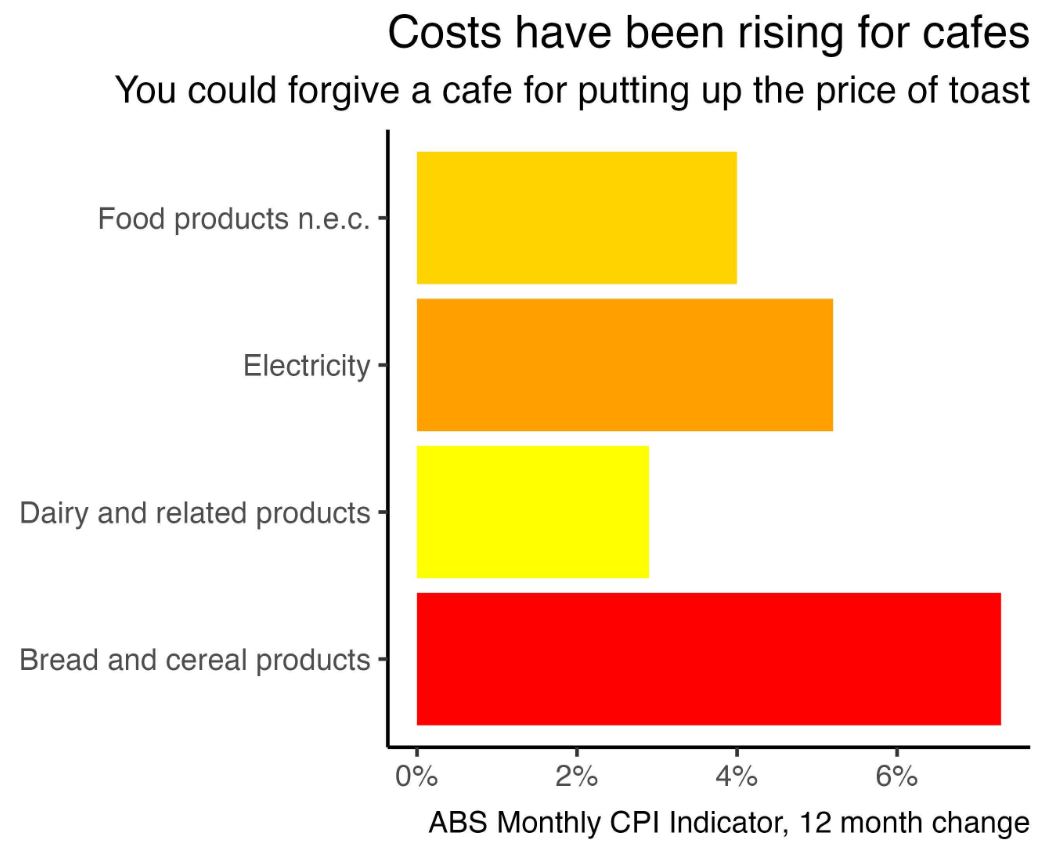
The latest data from Jobs & Skills Australia shows that Australia is awash with low-skilled workers, many of whom would work in hospitality:
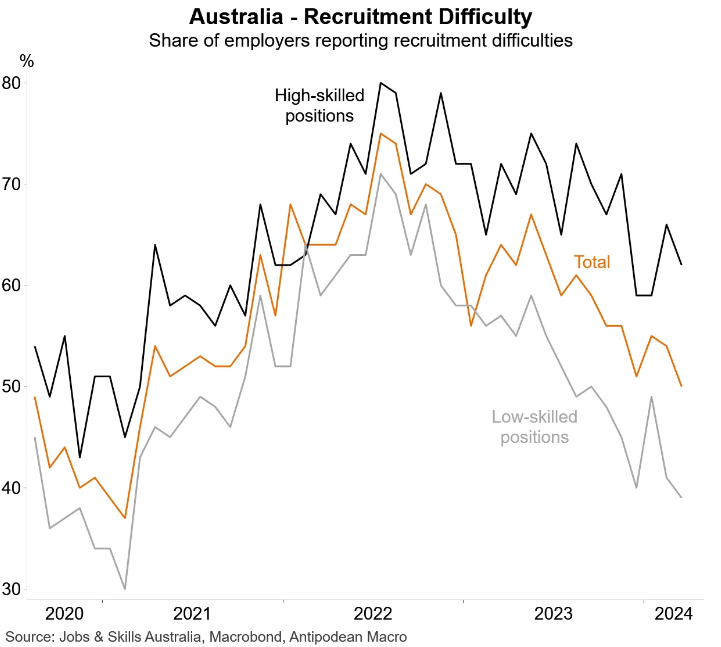
The number of low-skilled workers in Australia has ballooned, in part due to the record rise in international students:
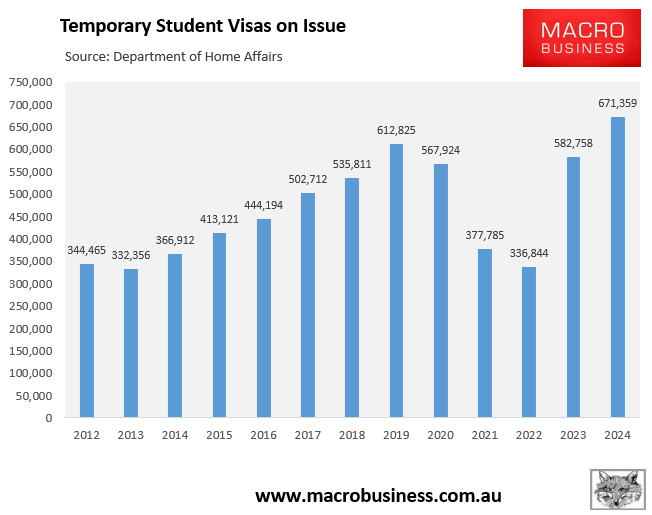
As noted in the Migration Review, international graduates also overwhelmingly work in low-skilled jobs like hospitality:
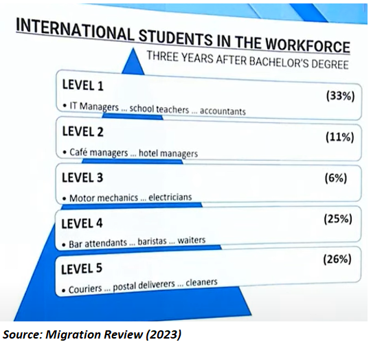
Thus, young Australians should brace for a sharp rise in unemployment as rising labour supply meets slowing job creation.

